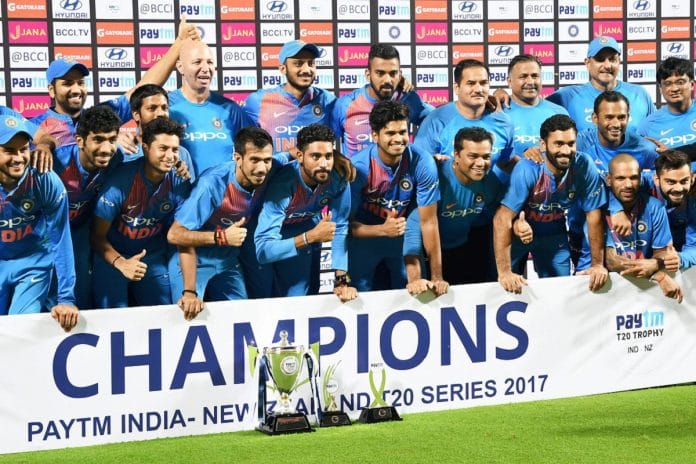The BCCI says it follows the ICC anti-doping code, and that NADA has no jurisdiction over it because it is not a national sports federation.
A leader is one who knows the way, and shows the way.
When a name as big as Maria Sharapova tested positive for a banned substance in January 2016, the International Tennis Federation lost no time in announcing a ban on her playing career. The ruling body of world tennis went a step further, and spent a tremendous amount of time and resources to determine if she violated the rules ‘intentionally’ or otherwise.
Sharapova, a five-time grand slam winner, has now returned after serving her ban, and swears it will never happen again.
Meanwhile, back home in India, the Board of Control for Cricket in India (BCCI) seems to have a different style of ‘leadership’.
Anti-doping complications
The World Anti-Doping Agency (WADA) has threatened to disaffiliate India’s National Anti-Doping Agency (NADA) if it doesn’t conduct dope tests on cricketers, and has written to the sports ministry to ensure of this. But in response to the pressure, the BCCI has said that it follows the ICC anti-doping code, and that NADA has no jurisdiction over it because it is not a national sports federation.
Now, legally, does NADA actually have any authority over the BCCI or the cricketers in doping matters?
The ICC anti-doping code says it is “a signatory to the World Anti-Doping Code”. It goes without saying that the BCCI, being an affiliated unit of the ICC, is bound by its anti-doping rules, and would be deemed to be WADA code compliant. If there is a problem with the BCCI’s compliance, it is for WADA to point that out to the ICC.
For years, the crux of the problem for the BCCI and its cricketers has been WADA’s ‘whereabouts’ clause. Cricketers say it is an invasion of privacy, and cricket administrators, too, seem to agree. It makes one wonder whose whereabouts are really in question here.
In the past, the ICC came up with a most innovative programme to placate the BCCI and top Indian cricketers — in-competition and out-of-competition testing. The arrangement was acceptable to WADA, and as long as the ICC is a WADA code signatory and has seemingly rectified the lacunae in its rules, no one should have a complaint.
But now, with the WADA’s change of stance and the threat to disaffiliate NADA, the situation has changed.
So, why is the BCCI so defiant? It’s true enough that BCCI is a private body that does not take any grants from the government, and hence, can claim to be independent enough to operate the way it likes. But according to a 2016 Supreme Court judgment, it serves a public function, and therefore must be treated like a public body.
The fear for the BCCI seems to be that if it does come under NADA’s ambit, and is perceived to be following the rules and regulations of other Olympic sports, it may have to become answerable to the Indian Olympic Association. For the BCCI, failing a drug test seems to be a better option than that.
In any case, the BCCI’s defiance is nothing new – its resistance to implementing the Lodha Committee reforms is a clear indication of the officials’ disdain for toeing the line. But, where does this strength and courage come from?
When you have powerful politicians taking up cudgels for you, and making sure the sports bill does not get passed in Parliament – because it would undermine the BCCI’s hegemony and would require the cricket body to undergo structural changes – defiance is natural.
When you have a government which overlooks the ‘drug and doping’ clause mentioned in the policy governing national awards, and continues to be generous in doling out national sports awards to all those recommended by the BCCI, is drug testing really a requirement?
But in sports, the BCCI must remember, there is a thin line between legality and morality, and for an ardent fan, whose heart is devoid of malafide intentions, it’s the perception of integrity that prevails.
(The author has anchored the Olympic, Commonwealth, and Asian Games for DD Sports since 2008, and is launching a new sports channel shortly)






